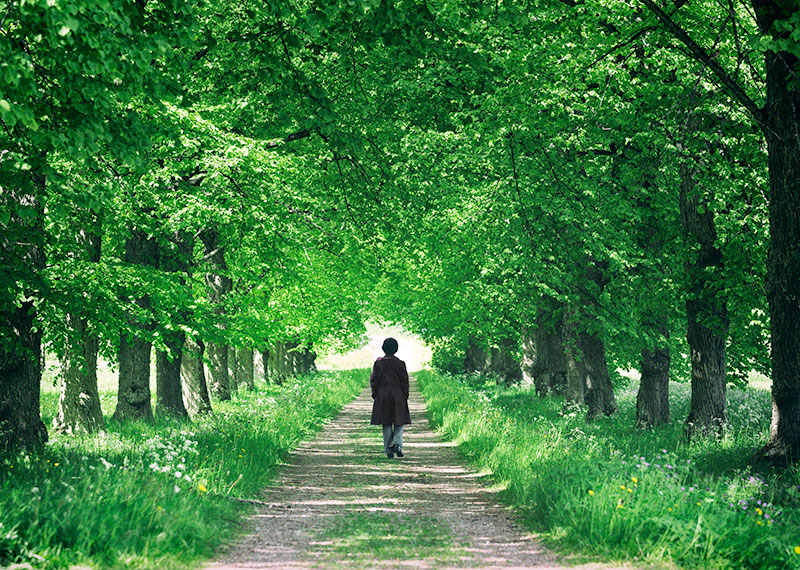Take to the Woods (Your Brain—and Students—Will Thank You)
If nature walks with your students aren't part of your curriculum, recent studies will convince you to change that.
 |
LordRunar/gettyimages |
Most of us are intuitively aware that a stroll through the trees will make us feel better. But why? Over the last few years there have been a number of studies that demonstrate that nature walks benefit us in a variety of ways.
Researchers take two matched groups of people and send them off for walks, one cohort into an urban environment or along a freeway, and the other into a forested setting. When measured for stress levels, blood pressure, or mood upon returning, every study found that the people who walked through the woods scored better than before going out, and the urban walkers either scored the same or worse than before.
One of the reasons we feel better after a walk in the woods deals with the interaction of attention and stress. Our mental filters are tuned to give possible threats our highest attention, and city streets are full of things we need to watch out for, whether it’s cars, bicyclers, or just aggressive fellow pedestrians. This constant vigilance is stressful and isn’t good for body or mind. People in a forest instead have their attention held by unthreatening things of beauty and interest, which keeps them relaxed and mentally in the moment. Neurologically speaking, it’s a form of meditation or mindfulness, with all the same medical benefits.
Even more disturbing, some studies have looked at the neural activity of walkers after spending time in these settings and found that a part of the brain associated with depression is more active in people who walked in an urbanized area. It’s the bit of brain that we use when we are negatively ruminating about ourselves, and nobody yet knows why spending time in the city activates it. However, it matches with other studies showing higher levels of depression among people who live in urban areas with no access to parks or green spaces.
The benefits of time in nature are so profound that there is now a practice called forest bathing, originating in Japan under the name Shinrin-Yoku. This is more than simply taking a walk, and includes thoughtful practices to make your time in nature more meaningful and beneficial. There are wonderful resources on this at the website of the Association of Nature & Therapy Guides and Programs, along with links to much of the background research supporting it.
So take advantage of the nice weather this spring and summer and take your students for a walk in the woods. Their brains will thank you for it!
|
If you want to try Shinrin-Yoku on your own or with your students, here are the things to do:
|
Other recent articles on brain science by Conn McQuinn include "Wired for Stories" and "The Brain Science of Making."
Conn McQuinn is a consultant and the owner of McQuinnable Educational Services. He has degrees in science and education, and 40 years of experience in science and technology education in both informal and formal settings, including the Pacific Science Center and Puget Sound ESD. He has served on the boards of the Washington Science Teachers’ Association and the Northwest Council for Computers in Education, presented at numerous conferences, and survived two years of being a PTA co-president. Conn is also the author of over a dozen children’s activity books, all of which are out of print and can only be found in the dusty corners of eBay.
RELATED
The job outlook in 2030: Librarians will be in demand
The job outlook in 2030: Librarians will be in demand
ALREADY A SUBSCRIBER? LOG IN
We are currently offering this content for free. Sign up now to activate your personal profile, where you can save articles for future viewing






Add Comment :-
Be the first reader to comment.
Comment Policy:
Comment should not be empty !!!